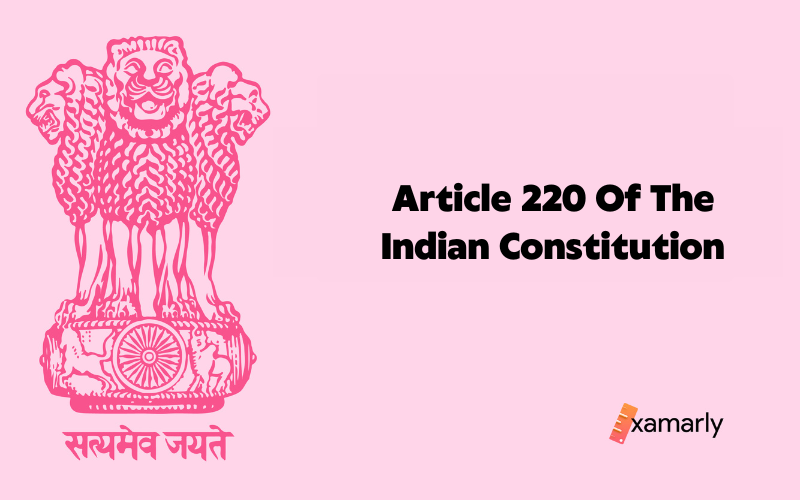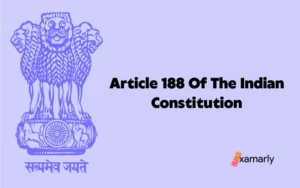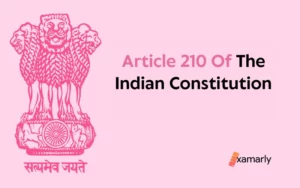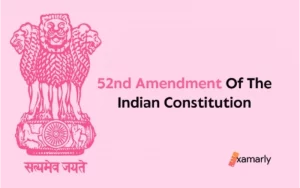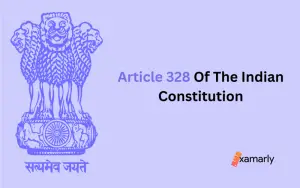Article 220 of the Indian Constitution talks about the restrictions on permanent judges regarding their practices in the courts.
We will dig deep into Article 220 of the Indian Constitution and grasp all the concepts related to it.
- What does Article 220 Of The Indian Constitution Say?
- The Amendment Is Related To?
- Summing Up
- FAQs
- Who is the first Chief Justice of India
- Who is the Chief Judge of India?
- What are the restrictions on judges?
- What is the maximum strength of a permanent judge of the Supreme Court?
- Why are judges not allowed to practice after retirement?
- What political restrictions are placed upon Judges?
- What judges Cannot do?
What does Article 220 Of The Indian Constitution Say?
220. Restriction on practice after being a permanent Judge No person who, after the commencement of this Constitution, has held office as a permanent Judge of a High Court shall plead or act in any court or before any authority in India except the Supreme Court and the other High Courts Explanation In this article, the expression High Court does not include a High Court for a State specified in Part B of the First Schedule as it existed before the commencement of the Constitution (seventh Amendment) Act, 1956
Article 220 of the Indian Constitution says that after becoming a permanent judge, there are restrictions placed on one’s ability to practice.
No person who, after the beginning of this Constitution, has held office as a permanent Judge of a High Court may plead or act in any court or before any authority in India other than the Supreme Court and the other High Courts.
This restriction applies only to the Supreme Court and the other High Courts.
Explanation In this article, the term “High Court” does not mean a High Court that served a state that was listed in Part B of the First Schedule before the Constitution (Seventh Amendment) Act, of 1956 went into effect.
Related – Article 215 Of The Indian Constitution
The Amendment Is Related To?
The seventh amendment to the Indian Constitution amended so many important articles of our constitution. Article 220 of the Indian Constitution is one of them.
Let us understand how Article 220 of the Indian Constitution gets amended by the Seventh Amendment of the Indian Constitution.
In the past, it was against the law for retired High Court judges to continue working as judges due to a stipulation in Article 220 of the Constitution.
As a result of the seventh amendment of the Indian Constitution, retired judges of High Courts are now permitted to practise before the Supreme Court as well as any other High Court outside the one in which they previously served as permanent judges.
Summing Up
We can conclude from Article 220 of the Indian Constitution that no person who has held office as a permanent Judge of a High Court shall plead or act in any court or before any authority in India except the Supreme Court and the other High Courts.
The term “High Court” does not include the High Court for States, as defined in Part B of the First Schedule.
But, we also saw that after the seventh amendment, this clause changed its nature.
FAQs
Who is the first Chief Justice of India
Justice Harilal Jekisundas Kania is the first Chief Justice of India
Who is the Chief Judge of India?
Dhananjaya Y. Chandrachud is the Chief Justice Of India
What are the restrictions on judges?
A judge is not allowed to hear and decide a case that involves a member of his family, a closely related, or a friend of the judge’s family. A judge can’t take part in a public discussion or say what he thinks about political issues or cases that are before the court right now or are likely to be brought before the court soon.
What is the maximum strength of a permanent judge of the Supreme Court?
The Act places a cap of thirty judges on the total number of justices that can serve on the Supreme Court (excluding the Chief Justice of India).
Why are judges not allowed to practice after retirement?
According to Article 124(7) of our Constitution, neither an established judge nor a justice is permitted to exercise their legal authority in any court located within Indian territory. According to our Constitution, it is illegal for judges to engage in such activities.
What political restrictions are placed upon Judges?
Judges are obligated to follow the laws that have been passed by Parliament; they do not have the authority to legislate themselves. The government has the ability to amend the law through the use of Parliament in order to suit its own interests and actions.
What judges Cannot do?
Unless the law says otherwise, a judge should never act as an arbitrator or mediator or do other judicial work that isn’t part of the judge’s official job. This includes acting as a judge in any way other than what the judge is supposed to do. The actual practice of law A judge should not engage in the practice of law and should never function as an advocate for a family member in any setting.


